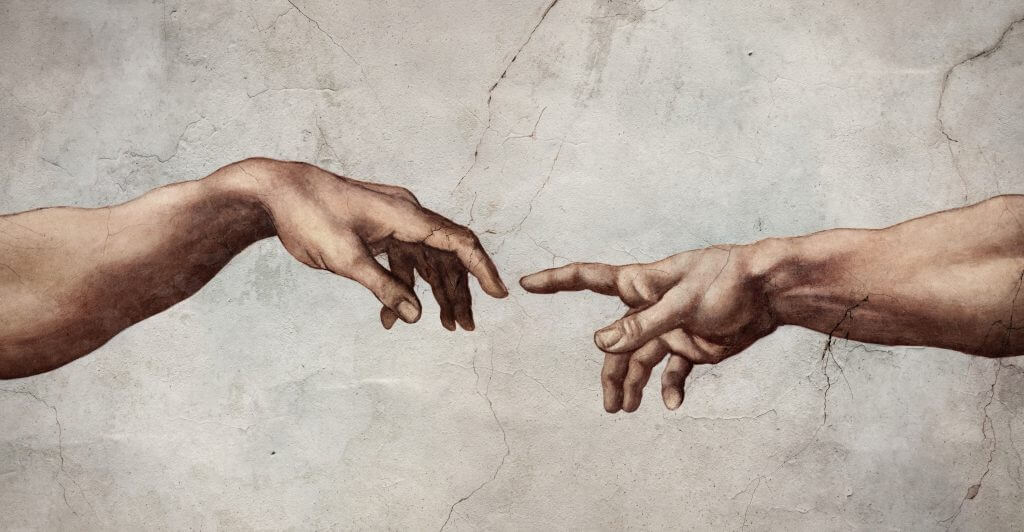Debates about the nature of God have echoed in Jewish and Christian circles over many centuries but without seeming resolution. When prophets and apostles who knew God were persecuted to the point of extinction, their successors, who didn’t know God—among them not a few of the persecutors—decided by committees what they thought God was like and formulated their ideas in official creeds, religious doctrines, and belief systems that persist to this day. It is remarkable that none of these lingering definitions of God match up with the sum total of biblical accounts but rather with parts and pieces, often taken out of context, as if their assessors didn’t have access to primary sources or else were too preoccupied in a theological war of words to consider the whole. As a consequence, what were intended as guideposts for the faithful ended up being misguided waymarks calculated to render ineffective whatever faith a believer could muster who wanted to know God personally as the ancients knew him.
In character with all resourceful committees, these new-sprung mediators between God and man reached a compromise—in this case a compromise of the most fundamental truth of all—concluding that firsthand depictions of God were not nearly sophisticated enough and that it was their sacred duty to render the idea of God more palatable for the masses. Contemporary philosophical ideas of an intangible God—a Greek or pagan god—were in any case much closer to their own concept of him. For if they, the paragons of virtue and ecclesiastical authorities of the day, didn’t personally know God then surely no one could know him. The upshot of this was that their definitions of God became a standard for the common man to follow, for all practical purposes turning God into little more than an abstraction. This ensured that future seekers of God would likewise never know him, because exercising faith in a false concept of God contravenes divine law and could therefore never yield the desired result.
Among Christian believers, explicit theological questions such as “Did Jesus marry and have children?” would now be too sacrilegious to ask. In fact, many down-to-earth aspects of Jesus’ life were so inconsistent with the new Christian orthodoxy that its priests and preachers have been compelled to resort to intellectual acrobatics and theological semantics to stay the tide of inquiry. But perhaps that is the beauty of it! Aren’t such occupational hazards themselves a sign that we and others of our kind are indeed in the service of our God? Doesn’t the defense of orthodoxy constitute the highest spiritual calling, landing our souls on the right hand of God? As for those who know God, or who say they know him, let us persecute them with the same zeal as did our venerable forbears who formulated for us our glorious albeit distorted definitions of God! Isn’t the fact that we have been able to sustain so splendid a historic achievement almost since biblical times itself divine proof of God’s gracious approbation?
In truth, one can’t say enough about the disservice to humanity these modern Sadducees and Pharisees have perpetrated by “shutting up the kingdom” to those who would enter (Matthew 23:13). As they have ingratiated themselves in Eastern and Western society, immortalizing their errant doctrines in its top schools and seminaries, the true character of God and the path to knowing him have been so lost sight of that few indeed there be who find it so long as the blind continue leading the blind. For all their lofty discourses and academic exegeses, who among them has seen God face to face as the ancients saw him? Just one such view would dispel the cumulative myths of generations and confirm the firsthand accounts of the past. But it would also mark its visionary as an object of derision, more especially from the tenured theologians whose profession could no longer be sustained. Well spoke the prophet Isaiah of this state of affairs: “Darkness covers the earth and a thick mist the peoples” (Isaiah 60:2).
To begin at the beginning, the Book of Genesis records that “God created man [’adam] in his own image, in the image of God created he him: male and female created he them” (Genesis 1:27); “In the day God created man [’adam], in the likeness of God made he him: male and female created he them. And he blessed them and called their name Adam in the day they were created” (Genesis 5:1–2). From these two passages we learn several things: (1) that God is a plural entity, as the word “God” (’elohim) is a plural term that literally means “Gods”; (2) that the term “God” denotes at least one male and one female, or the man and his mate could not have been created in his (and her) “image” and “likeness”; (3) that the singular pronoun “him,” referring to “man/Adam,” is interchangeable with the plural pronoun “them” when giving a more nuanced definition of “man,” as when referring to both Adam and Eve; and (4) that God’s “blessing” and “naming” of Adam attests to a covenant relationship with them.
(Taken from Endtime Prophecy: A Judeo-Mormon Analysis, pp 7–10)













Thanks.
Wow, this is so great. I just learned that Heavenly Mother is in the bible after all! I wonder if her name is Jerusalem as noted in Gal 4:26? (something I just discovered).